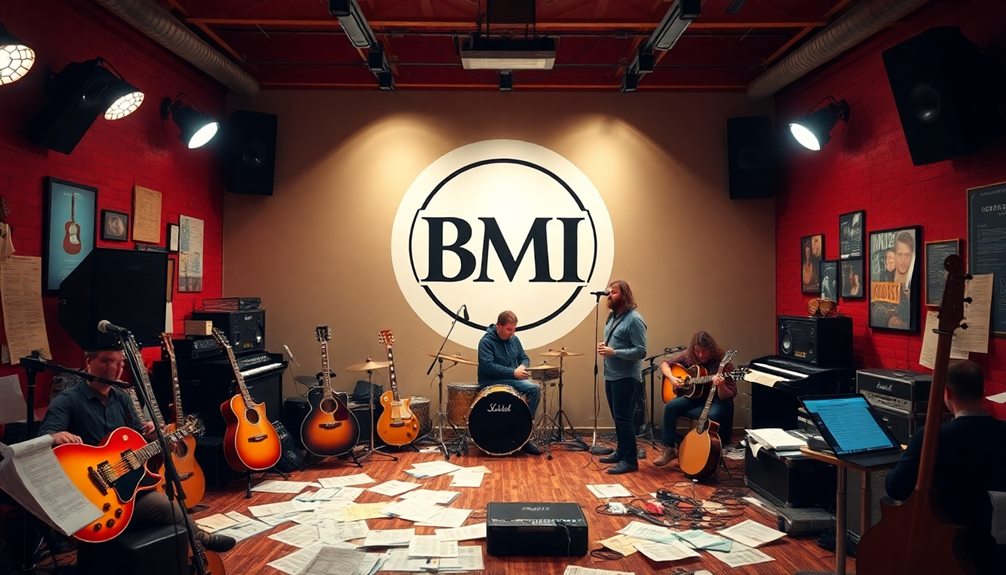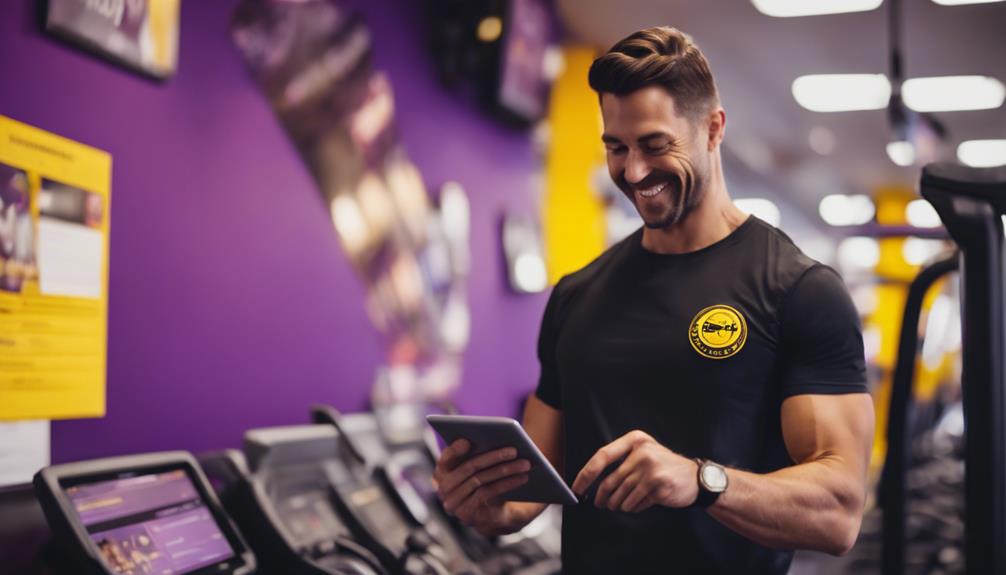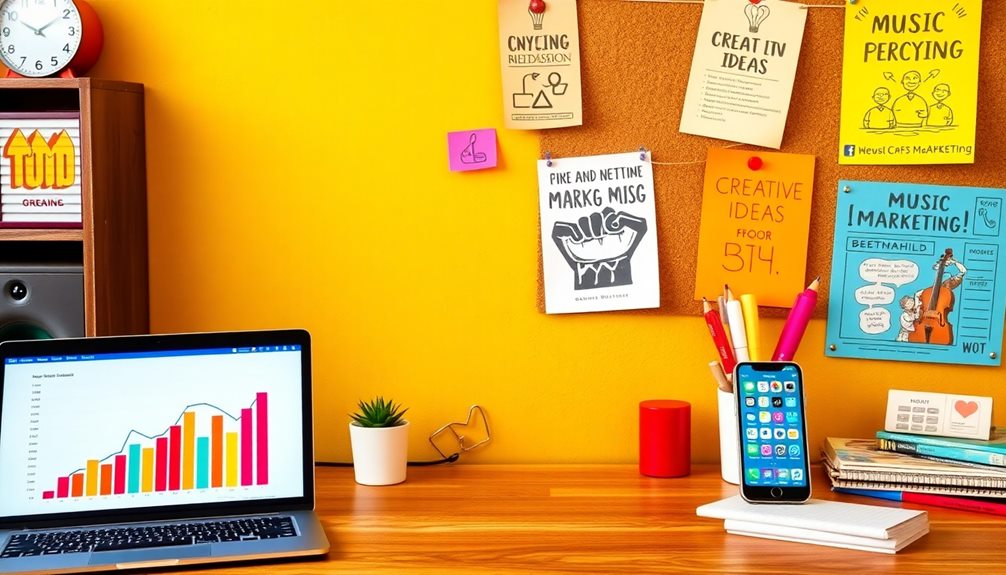If you want to land your first tour, avoid common mistakes like using vague subject lines, impersonal greetings, or unclear intentions. Personalize your message, keep it concise, and include all necessary contact info. Don’t overload your email with details or ask for unreasonable requests. Follow submission guidelines precisely and proofread before sending. Staying professional and respectful makes a big difference—stick with these tips, and you’ll discover more ways to improve your pitches.
Key Takeaways
- Using vague or unprofessional subject lines that fail to clearly convey your purpose.
- Addressing recipients with generic greetings instead of personalized, researched names.
- Being unclear about your specific goals, dates, and providing ambiguous contact details.
- Overloading emails with excessive details or missing relevant links and media for quick evaluation.
- Ignoring submission guidelines or making unreasonable requests that appear demanding or unprofessional.
Ignoring the Subject Line’s Importance
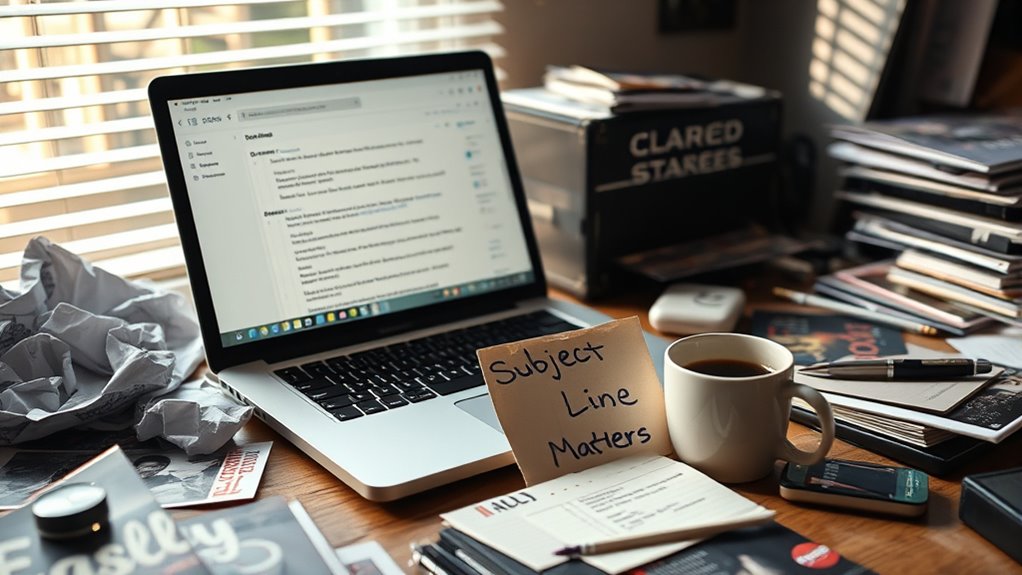
Many people overlook the importance of a clear and compelling subject line when sending booking emails. Your subject line is the first thing a booking agent or venue sees, and it determines whether they open your email or ignore it. If your subject is vague or unprofessional, your message might never be read. Instead, craft a concise, specific line that highlights your purpose—such as “Indie Artist Interested in Summer Tour Dates” or “Booking Inquiry for April 2024 Performance.” Avoid generic phrases like “Hello” or “Tour Inquiry,” which don’t stand out. A strong subject line grabs attention immediately, increases your chances of getting noticed, and sets a positive tone for the rest of your email. Remember, first impressions count, even in your email’s subject. Incorporating a relevant industry standards into your subject line can also demonstrate professionalism and awareness of industry standards. Recognizing the importance of self-awareness in your communication can help you craft more effective and engaging subject lines that reflect your professionalism and understanding of the industry.
Using Generic or Vague Greetings

Using generic or vague greetings can instantly diminish the professionalism of your booking email. Instead of starting with “Dear Sir or Madam,” address the recipient by name. Personalization shows you’ve done your research and genuinely want to collaborate. Picture these scenarios:
| Generic Greeting | Vague Opening | Missed Connection |
|---|---|---|
| “Hello,” | “Hi there,” | No name, no context |
| “To Whom It May Concern,” | “Greetings,” | Feels impersonal |
| “Hey,” | “Dear team,” | Lacks specificity |
A tailored greeting sets the tone for a respectful, professional message. It’s the first impression you make—make it count by avoiding vague openings. Personalization shows you’re serious and attentive to detail. Recognizing common signs of neglecting personalization can help you craft more effective, engaging outreach emails. Demonstrating knowledge of the local scene or specific venues can also boost your credibility and increase your chances of a positive response. Being aware of professional communication standards can further improve your approach and open more doors. Moreover, paying attention to email etiquette can help you build rapport and foster professional relationships.
Failing to Personalize the Message

A personalized message shows that you’ve taken the time to understand the recipient’s needs and context, making your email more compelling. When you customize your message, it shows you’ve researched the venue or promoter, referencing their past events or specific shows they’ve hosted. Avoid copy-pasting a generic template; instead, mention why you’re interested in working with them and how your music fits their audience. This effort demonstrates genuine interest and respect for their work. Failing to personalize makes your email seem lazy or impersonal, reducing your chances of a response. Take a moment to include details relevant to the recipient—your message will stand out and feel more authentic, increasing your chances of booking that first tour. Incorporating natural elements into your communication can also convey authenticity and create a more memorable impression. Additionally, demonstrating an understanding of audience targeting can help your message resonate more effectively. Being aware of market trends can also help you tailor your pitch to current industry interests, showing that you’re informed about the industry landscape and current opportunities.
Neglecting to Clearly State Your Intent
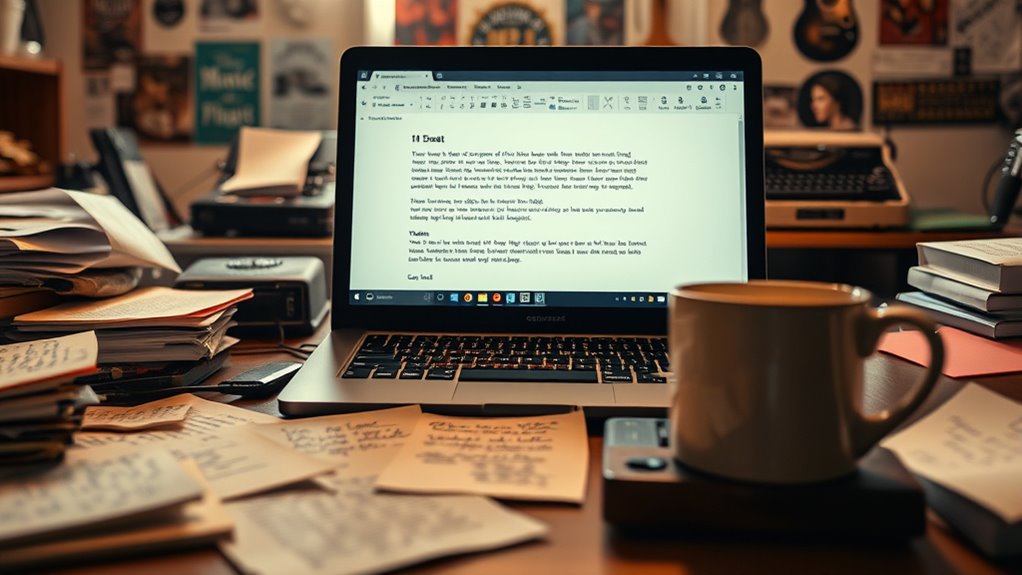
When you don’t clearly state your intent, your message can become confusing or overlooked. Make sure your goals are specific, including exact dates and details, so the recipient understands what you need. Don’t forget to include accurate contact information to avoid any communication gaps. Clearly outlining your anime movie preferences can also help in tailoring recommendations or responses.
Vague Tour Goals
Failing to clearly state your tour goals can lead to confusion and misaligned expectations. When your email lacks specific objectives, bookers don’t understand what you’re aiming for, making it harder for them to say yes. Are you trying to build a local fanbase, test new material, or reach a wider audience? Without clarity, they might assume your goal is different from yours, leading to mismatched opportunities. Be direct about what you want to achieve with the tour. Specify whether you’re looking for opening slots, festival appearances, or regional exposure. Clear goals help bookers see how you fit into their plans. When your intent isn’t obvious, it’s easy for your email to get overlooked or misunderstood, reducing your chances of booking your first tour. Additionally, demonstrating a clear understanding of your market conditions can further strengthen your pitch and show professionalism. Understanding audience demographics and how your music appeals to them can make your proposal more compelling and tailored to the opportunity.
Lack of Specific Dates
Neglecting to include specific dates in your booking email can cause confusion and delay your plans. When you don’t clearly state when you’re available or interested in touring, the recipient might assume you’re flexible or, worse, ignore your message altogether. Be precise about your desired dates, offering a few options if possible. This helps the venue or promoter see if your schedule aligns with theirs and speeds up the planning process. Vague or missing dates can lead to unnecessary back-and-forth, wasting time and risking missed opportunities. The more transparent you are about your timeline, the easier it is for others to accommodate you. Clear, specific dates demonstrate professionalism and respect for their scheduling needs, increasing your chances of securing the tour. Additionally, understanding venue availability can further streamline the booking process.
Ambiguous Contact Details
If you don’t clearly state your purpose in your booking email, the recipient may not understand what you’re asking for or how to respond. Make sure your contact details are easy to find and accurate. Include your full name, phone number, and email address in the signature or at the top of the message. Avoid vague or generic contact info like a social media handle that’s rarely checked. If you’re representing a band, specify your role clearly. Confirm that your contact details are correct and professional. This helps organizers respond quickly and reduces confusion. Ambiguous or incomplete contact information can cause delays or missed opportunities. Being clear about how and when to reach you increases your chances of securing the tour. Don’t leave the recipient guessing—make it simple for them to connect with you. Using professional contact details demonstrates your seriousness and increases trust. Ensuring your contact information accuracy aligns with best practices can further prevent communication issues.
Overloading the Email With Excessive Details

Including too many details in your booking email can overwhelm the recipient and obscure the main message. When you overload your email with excessive information—like detailed schedules, full bios, or lengthy press kits—you make it harder for the recipient to quickly grasp your core request. Keep your message focused: briefly introduce yourself, state your intent, and highlight key points such as your preferred dates and your music style. Save the extra details for follow-up emails or attachments, rather than cluttering the initial message. Remember, booking agents receive dozens of emails daily. A clear, concise email increases your chances of getting a timely response. Less is more; get straight to the point without sacrificing professionalism.
Forgetting to Include Relevant Links and Media

Have you ever sent a booking email without attaching the necessary links or media? It’s a common mistake that can cost you opportunities. When reaching out, make sure to include:
- Your latest press kit or EPK (Electronic Press Kit)
- Links to recent performances or music videos
- Your social media profiles for quick reference
Failing to provide these makes it harder for bookers to evaluate your talent quickly. They shouldn’t have to ask for your work or search for it elsewhere. Including direct links and media not only demonstrates professionalism but also helps you stand out. Keep your email focused, clear, and complete. Remember, the easier you make it for bookers to find your work, the more likely they’ll want to work with you.
Asking for Too Much or Being Unreasonable

While it’s tempting to ask for everything you want in a booking email, pushing for too much can backfire. Promoters and venues appreciate reasonable requests, not entitlement. If you ask for a high fee, a specific venue, or extras like free lodging or equipment, you might seem out of touch or demanding. This can turn them off early in the conversation. Instead, be clear about your needs and flexible where possible. Show that you understand the venue’s limitations and are willing to compromise. Overly ambitious requests can make you appear unprofessional or difficult to work with, reducing your chances of landing the gig. Focus on building a positive, respectful tone, and negotiate reasonably to keep the door open.
Ignoring the Venue’s or Promoter’s Submission Guidelines
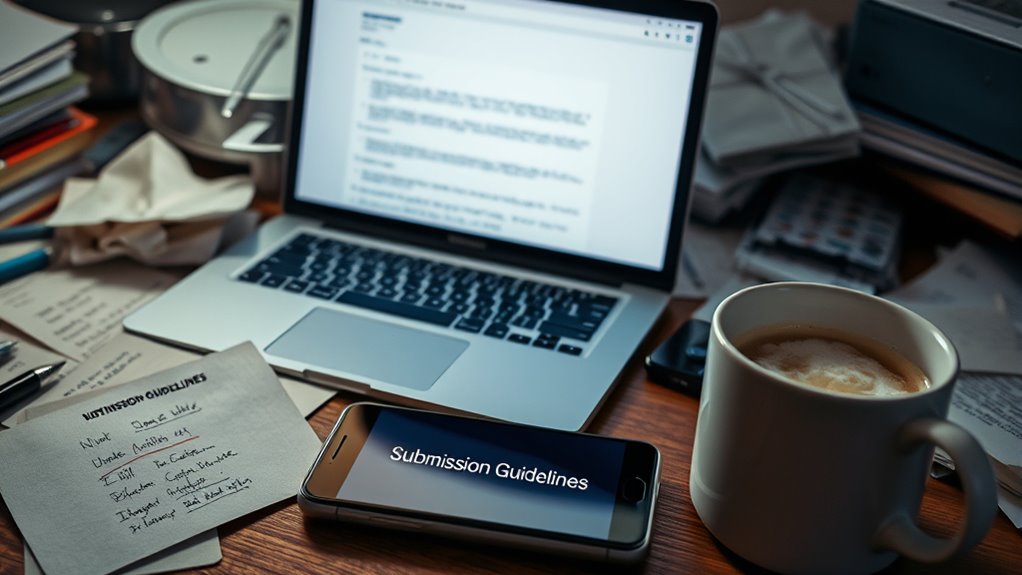
Ignoring the venue’s or promoter’s submission guidelines shows a lack of professionalism and respect for their process. When you overlook these instructions, you risk your email being ignored or dismissed outright. To avoid this, consider these common pitfalls:
- Not reading the guidelines carefully—missing specific info they request.
- Ignoring formatting instructions—such as file types or subject line requirements.
- Failing to include all requested materials—like press kits or links, which can make your pitch incomplete.
Sending Multiple Follow-Ups Too Soon or Not at All

You need to find the right balance with your follow-ups—sending them too quickly can come across as pushy, while waiting too long might make you forgettable. Timing is key; space your messages out appropriately to stay on the organizer’s radar. Remember, the number of follow-ups should be enough to show your interest without overwhelming them.
Timing of Follow-Ups
Timing is crucial when it comes to follow-up emails after a booking request. Sending them too soon can seem pushy, while waiting too long risks losing interest. To strike the right balance, consider these points:
- Wait at least 3-5 business days before following up to give the recipient time to respond.
- Avoid multiple follow-ups within 24 hours, which can come across as aggressive.
- Know when to send a final follow-up—usually after 2-3 attempts—so you don’t appear desperate.
Being strategic with your timing shows professionalism and respect for their schedule. It keeps you on their radar without overwhelming them, increasing your chances of securing that tour.
Quantity of Messages
Have you ever wondered how sending too many follow-up messages can backfire? Bombarding booking contacts with daily emails shows desperation and can annoy the recipient, decreasing your chances. Conversely, waiting too long to follow up may suggest disinterest or lack of professionalism. Striking the right balance is *essential*. Consider this guide:
| Follow-Up Timing | Number of Messages | Effect on Response Rate |
|---|---|---|
| 1-2 days | 1-2 messages | Shows persistence without pestering |
| 1 week | 3-4 messages | Maintains interest, avoids burnout |
| 2+ weeks | 0-1 message | Risk of losing momentum |
| Too frequent | Multiple daily | Likely to be ignored or blocked |
Adjust your follow-ups based on the situation, ensuring you’re persistent but respectful.
Overlooking Professional Tone and Proofreading

Neglecting to maintain a professional tone or failing to proofread your booking emails can easily lead to misunderstandings or damage your credibility. When your message seems sloppy or unpolished, it sends the wrong impression to bookers. To avoid this, focus on these key areas:
- Use proper greetings and polite language to show respect.
- Double-check for typos, grammatical errors, and factual inaccuracies.
- Keep your message clear, concise, and free of slang or informal expressions.
Frequently Asked Questions
How Do I Craft an Effective Subject Line for My Booking Email?
You want your booking email to stand out, so craft a clear, compelling subject line. Use your artist’s name and mention the venue or event to grab attention. Keep it concise, ideally under 10 words, and include a call to action or intriguing detail. Personalize it if possible, showing you’ve researched the venue. A strong subject line increases your chances of getting noticed and getting a response.
What Are Some Examples of Personalized Greetings for Promoters?
Did you know personalized greetings boost your chances of getting noticed? Instead of generic “Hello” or “Dear Promoter,” try using their name or referencing a recent event they organized. For example, “Hi Sarah, I loved your recent festival lineup,” or “Hello Mark, I saw your review of local bands—excited to connect!” These small touches show you’ve done your homework and genuinely want to collaborate, making your email stand out.
How Can I Balance Providing Enough Detail Without Overwhelming the Recipient?
You want to share enough info to catch their interest without overloading them. Keep your message clear and concise, highlighting your key achievements and relevant experience. Use bullet points or short paragraphs to make it easier to scan. Focus on what’s most important to them, and avoid unnecessary details. This way, you maintain their attention and make it simple for them to see your value quickly.
When Should I Send a Follow-Up Email After the Initial Contact?
You should send a follow-up email about a week after your initial contact if you haven’t received a response. This timing shows you’re interested without seeming pushy. Keep your message polite and concise, reiterating your enthusiasm and availability. Avoid sending multiple follow-ups in a short span, as it might come across as desperate. Patience and professionalism go a long way in building trust and increasing your chances of booking.
What Are Common Professional Mistakes to Avoid in Booking Emails?
Did you know that over 70% of booking emails get ignored? To avoid this, steer clear of common mistakes like vague subject lines, overly long messages, or sounding desperate. Be professional, concise, and personalized. Double-check your grammar, include all relevant details, and always address the recipient by name. These simple steps boost your chances of a positive response and help you land that vital gig.
Conclusion
Avoiding these common email mistakes can make or break your first tour opportunity. It might seem like small details don’t matter, but they show your professionalism and respect for the booking process. If you’re worried about sounding too formal or unfamiliar, remember that clear, polite communication builds trust. Focus on making a good impression, and your chances of landing that tour will improve—because even small efforts can open big doors.


